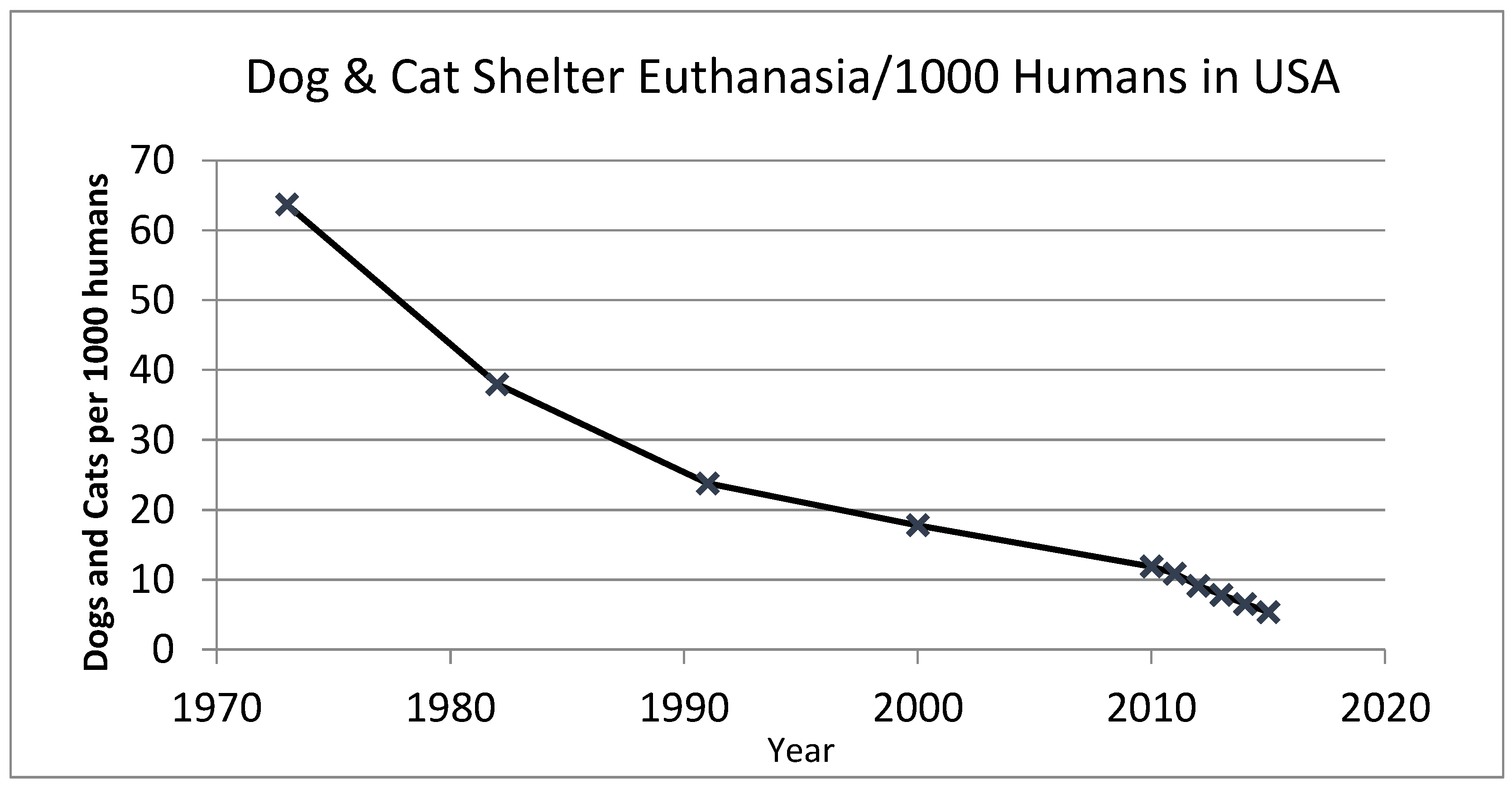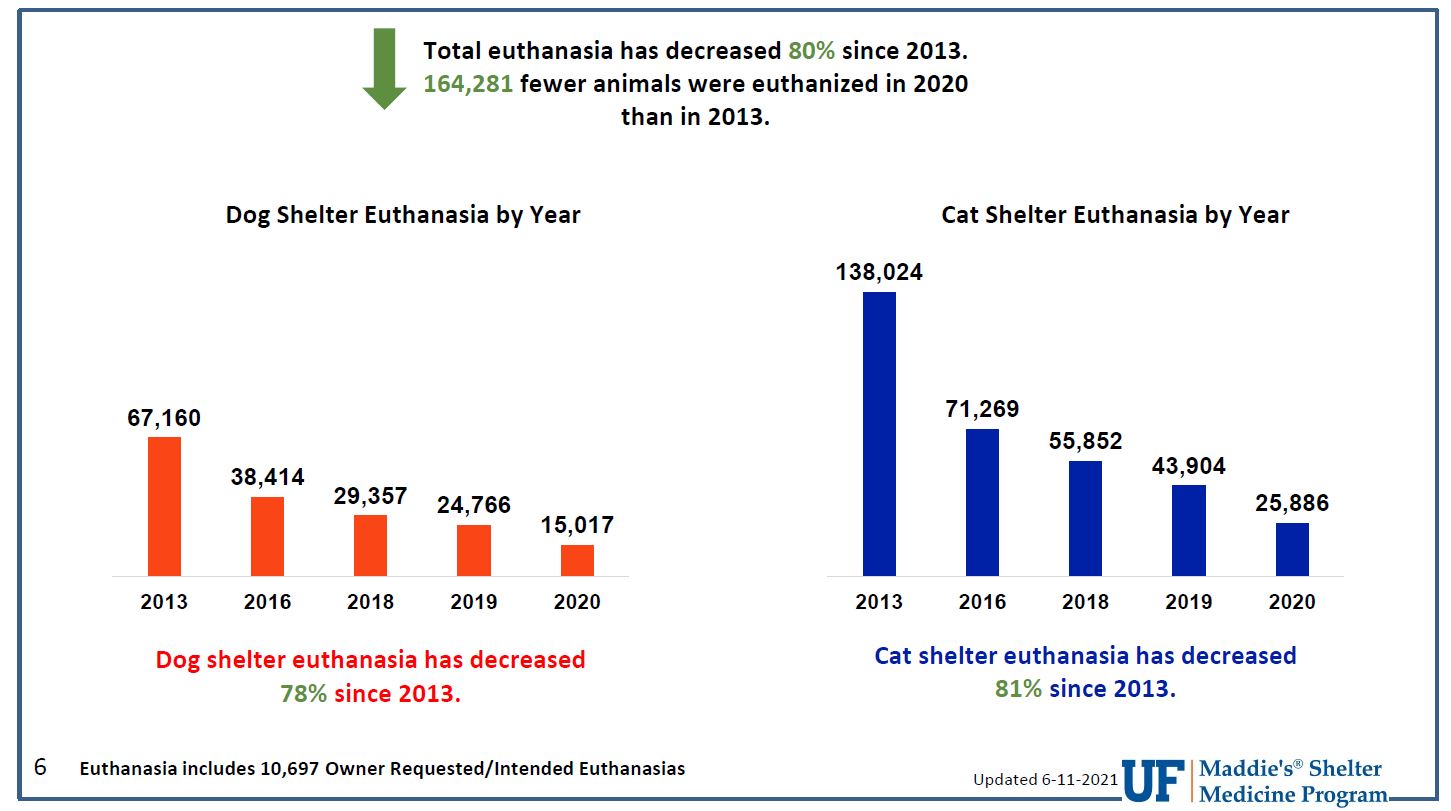Here are some key aspects of the "Adopt, Don't Shop" movement:
Promoting Animal Welfare
One of the primary goals of this movement is to address the issue of overpopulation and the suffering of animals in shelters. By adopting shelter animals, people contribute to decreasing the demand for commercial breeding, which often prioritizes profit over the well-being of animals. Reducing the demand for pets from breeders helps address overpopulation and limits the number of animals in need. Approximately 6.3 million companion animals enter U.S. animal shelters nationwide annually, and of those, 4.1 million are adopted.
Reducing Euthanasia
Shelters often struggle with limited resources and space, leading to the unfortunate euthanasia of animals due to overcrowding. By adopting, individuals help reduce the number of animals that need to be euthanized.According to the ASPCA, the euthanasia of healthy, adoptable cats and dogs in U.S. shelters is down to its lowest point in history. While difficult to pinpoint an exact figure, best estimates are that fewer than 750,000 healthy and safe cats and dogs are euthanized annually. The remaining cats and dogs who are euthanized experience untreatable medical illnesses or are unsafe to place in the community.

On a national scale, euthanasia in shelters has decreased 92 percent from 1970

The Maddie’s Shelter Medicine Program at UF periodically conducts a statewide census of animals that pass through more than 150 animal shelters across Florida. In their most recent survey, they found that euthanasia has decreased 80 percent in the past decade.
Encouraging Responsible Breeding
The movement discourages the demand for pets from commercial breeders or puppy mills, which often prioritize profit over the health and well-being of animals. Advocates of "Adopt, Don't Shop" encourage responsible breeding practices and raise awareness about the problems associated with puppy mills; they are notorious for inhumane conditions, overbreeding, and poor care of animals. By choosing adoption, individuals send a clear message that such practices are unacceptable.
Promoting Mixed-Breed Adoption
When one averages the statistics found about both dogs and cats in the 2017-2018 AVMA Sourcebook and the 2021-2022 APPA Survey, about 67 percent of them are mixed-breed. By adopting mixed-breed animals, individuals contribute to a more diverse and varied pet population while helping to reduce the prevalence of breeding for specific traits. Their promotion helps combat the obsession with purebred animals and reduces the demand for specific breeds, which can lead to health issues due to overbreeding.
Saving Money
Adoption fees at shelters are generally more affordable than purchasing a pet from a breeder. A rescue is around $100 in adoption fees, and typically covers spaying/neutering, vaccinations, and sometimes microchipping, making it a cost-efficient way to bring a new pet into one's life. Fees from a reputable breeder can be as much as $1,500 plus the cost of spay/neutering, microchipping, and vaccines. This cost-saving aspect encourages individuals to consider adoption as a financially responsible option.
Supporting Local Communities
Adopting from local animal shelters and rescue organizations can have a positive impact on the community. It helps these organizations continue their important work and provides a network of support for pet owners.
Spreading Awareness
The "Adopt, Don't Shop" movement uses social media, awareness campaigns, and educational initiatives to spread the message of responsible pet ownership and the benefits of adoption. Many celebrities and social media influencers have played a role in promoting the "adopt, don't shop" message. Their support has brought the movement to a broader audience.
Some of these include:
- Ellen DeGeneres: The popular talk show host and comedian has been a vocal advocate for pet adoption and has worked to raise awareness about animal welfare issues.
- Amanda Seyfried: Actress Amanda Seyfried is an active supporter of animal rescue organizations and encourages her fans to adopt pets.
- Ian Somerhalder: The "Vampire Diaries" actor founded the Ian Somerhalder Foundation, which focuses on animal welfare, among other causes.
- Miley Cyrus: The singer and actress is known for her love of animals and has adopted several rescue pets.
- Olivia Munn: Actress Olivia Munn is an advocate for animal rescue and promotes pet adoption.
- Kaley Cuoco: "The Big Bang Theory" star Kaley Cuoco is a passionate animal lover and frequently advocates for adopting shelter pets.
- Zooey Deschanel: Actress and singer Zooey Deschanel has worked with animal rescue organizations and promotes the adoption of shelter animals.
- Charlize Theron: Academy Award-winning actress Charlize Theron has adopted rescue dogs and actively supports animal welfare causes.
- George Clooney: Actor George Clooney and his wife, Amal, have adopted rescue dogs and promote animal adoption.
- Jennifer Aniston: Actress Jennifer Aniston has been a vocal advocate for animal adoption and has adopted rescue dogs herself.
Strengthening the Bond
Adopting a pet can be a rewarding experience, as many shelter animals are known to be grateful and loyal to their new families. One can describe the bond between an adopted pet and their owner as incredibly strong and fulfilling. These animals are known to be incredibly loyal and appreciative of the love and care they receive.